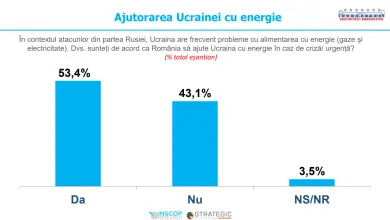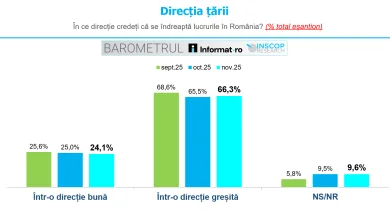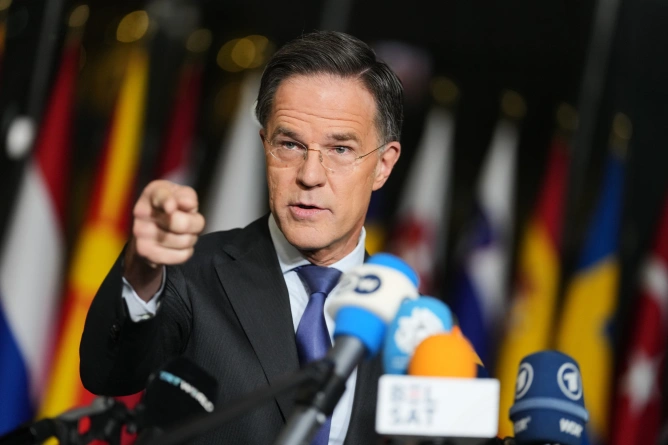
The end of October, just passed, also brought the new edition of the Energy Security Barometer, regularly conducted with the help of data collected and analyzed by INSCOP. The longevity of the project already allows for a series of comparisons and highlights trends whose understanding could protect us from many surprises because, as it is, one thing is the energy market, another is the consumer's understanding of it. And it is normal for it to be so, this market having a specific, both technical and commercial, much harder to evaluate than others by the ordinary person, but which, at the same time, affects them enormously for easily understandable reasons. And, for those who do not believe, they should study the bills from the last five years and say what they observe in relation to them…
The liberalization of the energy market in 2021 came to Romania accompanied by a price capping scheme, a scheme based on consumption. To mitigate the shock, both psychological and financial, and probably to apply the capping more easily… A socially motivated aid was, of course, understandable. The hypothesis that if you exceed a cap you are a wasteful person and want to destroy the planet is based, however, on a small misunderstanding of the fact that, in many rural areas, we have more electricity than gas, for example, but also on an ignorance of the idea that it would be more civilized to stimulate electricity consumption at the expense of gas, wood, etc. Still, for those who studied the documents of the Commission and the European Parliament, it was known that liberalization was to come and it was a policy through which the Union believed it would bring affordable energy, at decent prices and increasingly "greener". Of course, it was to be expected that some time would pass until the market settled and it is debatable whether specialists expected such a large and sudden price increase in a market where there were already enough suppliers from the beginning (but in the slightly comical conditions in which producers and infrastructure were as we had known them for years).
The capping of electricity prices, through the various schemes that have worked for us, was based, as we know, on the idea that it "sanctions" high consumption. Not the brightest paradigm, especially since it was not associated with a judgment regarding the consumer's income. In short, if you had a house, all on electricity (boiler, heating, pump for the well, electric stove), because you had no running water, gas, and no wood heating or something equivalent, you became, as I said, the "wasteful" who destroys the planet, while someone else could have capping for both gas and electricity, because the presence of both sources reduced the consumption of each of them. And if they also used wood, to be "eco" until the end, it was even better. Sure, we could ask ourselves why we stimulated such consumption of gas and wood… And how do we reduce pollution if we use these to reduce electricity consumption? Likewise, it is evident that, under the conditions in which electricity is the primary source of energy, families with children will have a higher consumption than those without, etc. So, what kind of consumption are we "punishing"?
The fact is that, for most households in our country, the great liberalization was (in 2021 and 2022) just a momentary excitement, not a real cost, becoming visible rather in the middle of this year, once the capping scheme disappeared.
All in all, 64% of Romanians, according to the cited barometer, are not pleased with the disappearance of the capping scheme. On the other hand, 50% of Romanians believe that subsidies for energy prices should be granted only to those with low incomes (the most frequently selected response option), not to everyone. Of course, we are not necessarily talking about exactly the same respondents in the first case and in the second, but the overlap is significant. Let’s not forget that 49% of Romanians appreciate the measures taken so far by the state for capping energy prices, according to the same barometer, and a quarter of Romanians believe that it is not normal for there to be no capping. The moral? Not every consumption of electricity is waste, and, at the same time, a lower consumption of electricity is not a form of sustainability if it is doubled by one of firewood or gas just to fit within caps. Moreover, in our case, the consumer has not been put in a real situation to understand the debate that should have put face to face social-based capping vs. that based on the quantity of energy consumed. Liberalization has proven to be, as so often after 1990, a price increase and nothing else, capping a saving trick, and the state appeared confused in its attempt to manage two policies – both the liberalization of the relevant market and the capping of energy prices for consumers. At least that was understood.

.webp)


























